I wanted to see The Last Duel in theaters. It is a story that my partner was interested to see, and we were making tentative plans to see it. I'm still hesitant to go to a movie theater due to the ongoing COVID pandemic. I actually passed on seeing Spider-Man: No Way Home in the theater because I don't want to sit in such a crowded space with total strangers. I was actually kind of relieved that The Last Duel was bombing in theaters. It would mean that we could go see it in theaters, and I could be comfortable in the knowledge that we should expect to have no problems social distancing in the theater.
But real life happened. We got busy with stuff, and kept putting it off. Then my partner actually caught COVID, so we were self-quarantined for 2 weeks. By the time we would have had an opportunity to go to the theater, I think The Last Duel had already been pulled.
So when we were sitting around in the holiday week between Christmas and New Year, with plenty of free time on our hands, we saw it while scrolling through HBO Max and decided to finally watch it.
The structure of The Last Duel is quite unorthodox for a feature film. It abandons the typical 3-act structure of most mainstream movies in favor of more of kind of a 4-act structure, in which the first 3 acts retell the same events from 3 different characters' perspectives. There isn't technically a 4th act, as the climactic duel is actually part of the 3rd act, but as it's a culmination of all 3 characters' plots, I kind of see it as its own 4th act.
I'm on the fence about this particular style of story-telling. On the one hand, there's a lot of subtly and nuance that re-frames or re-contextualizes most of the events depicted. We get to see multiple characters' conflicting perspectives of the same events, and how one person can believe himself a hero, while everyone else might see him as a self-righteous dick.
However, I have two significant complaints with the structure of this film, in particular.
The first complaint that I have with The Last Duel is that the desire to re-tell the same events 3 times leaves little time for anything else. We get one scene early in the movie of De Gris and Carrouges fighting together on the battlefield. There's nothing else to help build up and develop the deep friendship and respect that they supposedly have. The audience is constantly being told that they are good friends, but all we ever see is petty bickering between them. We just have to take the characters' word for it that they were ever friends to begin with. [More]
b7718c92-7e52-493a-b5f7-6ddcf9286607|1|5.0
Tags:The Last Duel, Ridley Scott, Amazon Prime, movie theater, Jean de Carrouges, Jacques Le Gris, Marguerite de Carrouges, France, history, medieval, duel, court politics
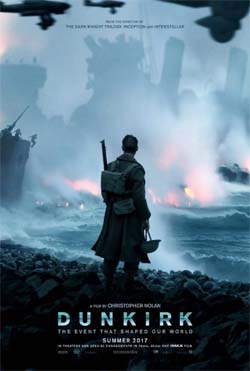
I've had a busy couple of weeks of movies! Three movies in the past two weekends, and planning on seeing Spider-Man: Homecoming in the next couple days. But first, while trying to keep ourselves entertained in Des Moines, my girlfriend and I decided to kill a couple hours at the movies and checked out the newly-released war movie from Christopher Nolan: Dunkirk.
I'll admit that it took me a little while to figure out this movie's chronological structure. Director Christopher Nolan decided to edit the movie into a non-sequential order, in which individual scenes jump back and forth between points in the movie's timeline (sometimes to show the same event again, but this time from a different point of view). There's three main storylines running in parallel: a pair of soldiers trying to catch a boat off the beach, a pair of pilots hunting down German bombers, and a civilian yacht captain setting sail to help rescue the stranded British army. Early in the movie, the scenes with the soldiers take place at night, and the scenes on the planes and in the yacht take place during the day.
At first, I thought maybe this was some kind of time zone difference. Like maybe the scenes on the boat were taking place sufficiently east that the sun had already set; whereas, the planes were flying far enough west that the sun hadn't set yet. This wasn't the case. The movie was, in fact, shifting between an aerial pursuit taking place during one afternoon and the boat escapes that happened the night before (or several nights before). Maybe I missed something at the beginning of the movie that made this all more clear?
I didn't have any trouble following along with the non-linear, compressed time in Inception, but this movie threw me off a tiny bit simply because I wasn't expecting it. Once I realized how the movie actually worked, it was easy to follow along with each of the individual threads, and to start to see where and how they intersected. Not a deal-breaker in any way. By the end, everything comes together quite nicely.
The early movie cycles between the day of the evacuation and conflict from the night before.
Much like War for the Planet of the Apes (which is quite good), Dunkirk is a surprisingly slow and quiet movie... [More]
ec6176f9-74f2-434d-999c-0026907a5531|0|.0
Tags:Dunkirk, Christopher Nolan, World War II, Britain, France, Germany, dogfighting, stuka, dive bomber, spitfire, U-boot, beach, English Chanel, silence, horror, war
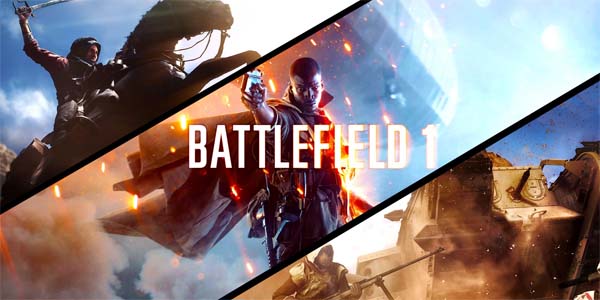
Nobody can make a game about World War I. Trench warfare is too boring. Nothing really happens. There isn't a strong, identifiable villain or good versus evil struggle.
Those are among the many excuses that people made for why all the video games are about World War II, and never about World War I. And then the gaming public and journalists got a glimpse of this:
The teaser trailer for Battlefield 1 was a smash hit.
That teaser trailer was damn good. People were excited. I haven't played a first-person shooter since Call of Duty: World at War, I generally hate online shooters, but even I was excited to try out this game! And other people were hyped about it too.
Now, I never really bought into the idea that World War I was "not video game material". I've long advocated for games to look at all periods of history for inspiration, and World War I is a monumental moment in world history that certainly deserves to be examined by games. The indie market certainly realized this, with games like Valiant Hearts and Verdun. But the big publishers have completely shied away from "The War to End All Wars".
This is a shame. The rapid technological advancements and radically new military tactics that evolved leading up to (and during) the war could be great material to examine in the form of a game. The widescale industrialization of warfare, the complicated politics, and the general fuzziness of the morality of the war are also ripe source material for dramatic storytelling. So it's about time to see this war thrust into the mass market spotlight.
I'd prefer to have seen a strategy game along the lines of Total War; but whatever, I'll give DICE and Battlefield 1 a chance.
UPDATE: 12 MARCH 2018, Better than I gave it credit for:
After having played Activision's Call of Duty: WWII and (especially) EA's Star Wars:
Battlefront II, and having talked about it with friends, I have gained a bit of respect for the successes that Battlefield 1 has been able to accomplish. I've started to like it more in retrospect. Not enough to go back and re-play it or try out any of the expansions (yet), but I do feel that I may have been a bit too harsh on the game in retrospect, especially with regard to its campaign vignettes.
I'm not going to change my original review score, but compared to CoD:WWII and Battlefront II, this game probably deserves a slightly higher grade. So keep that in mind as you read the following review. Of all the big-budget first person shooters that I've played in the past couple years, Battlefield 1
is probably the one that I most enjoyed, and it's the one that I would recommend.
The futile indifference of war
First impressions were actually pretty damned good. I was actually really impressed with Battlefield 1's campaign tutorial. It's basically a guided tour of the game's various core mechanics: shooting at enemy soldiers, capturing victory points, piloting vehicles, and so forth. It does a good job of introducing each of these mechanics and systems by jumping the player around between multiple characters in a large-scale battle.
But what really stuck out to me was how the tutorial transitioned between these different set pieces, and how it handled player death. This tutorial is actually surprisingly merciless and difficult. As you complete one set piece, the game gradually (and subtly) increases the threat until it becomes overwhelming and your character dies (or they just kill you after a timer expires), which allows the game to teleport you to the point of view of another character for the next set piece. The dying character's name and birth / death years are shown on screen during the transition, granting that character with a certain degree of humanization.
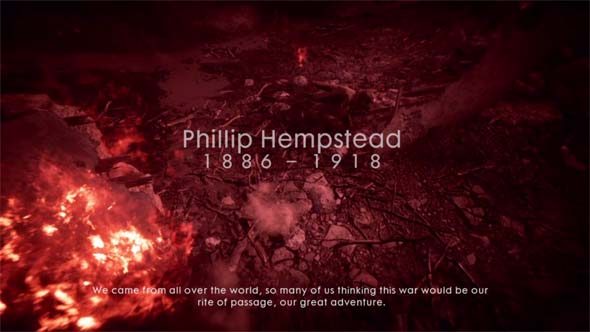
The excellent tutorial emphasizes the indifference and futility of "The War to End All Wars".
Depending on how good you are at the game, you'll go through between half a dozen to a dozen different characters, each with a name and an age. And they all die. The tutorial makes this war look brutal and futile. It even has an almost Dark Souls-like indifference to the player character, killing you without a second thought and forcing you to respawn as another poor, dumb bastard who's about to die for his country, rather than restarting you at a checkpoint until you get it right.
I even wish DICE had gone a bit further by also displaying the character's birth place and maybe even a snippet or two of other biographical trivia. Maybe listing some hobbies, or saying that he was on his high school's varsity football team, or some other little detail like that. DICE settled for just the name and birth / death year, but it's still effective and establishes a very strong running theme throughout the tutorial. The point is a bit undercut by the rapid pacing and by how conventional the actual running and shooting feels. But I still walked out of this tutorial excited by what the rest of the campaign had to offer. [More]
1b3222c5-df25-48fc-8292-199702831456|1|5.0
Tags:Battlefield 1, Battlefield, EA, Electronic Arts, DICE, PC, mouse & keyboard, EA Origin, shooter, online, multiplayer, World War I, war, history, trench warfare, chemical weapon, Harlem Hellfighters, tank, biplane, horse, England, France, Germany, Ottoman Empire, Europe, Argonne Forest, Arabia, Laurence of Arabia, eBay
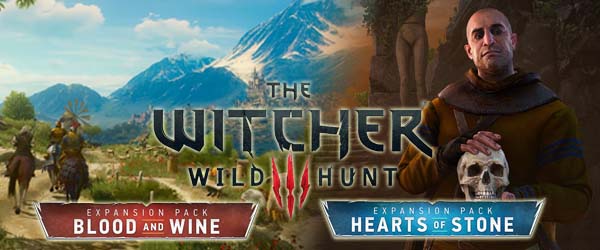
I just don't understand how CD Projekt Red can be such masters at world building and quest design, but are completely inept at everything that involves Geralt drawing a sword or throwing igni. I almost gave up on Hearts of Stone because the beginning of its main quest just put me into a controller-throwing rage.
Geralt is tasked with killing a mysterious sewer monster who has been killing women who go into the sewer hoping to find a toad who can be turned into a prince with a kiss. One of The Witcher III's long-standing annoyances for me is that it makes such a big deal about Geralt being so analytical that he prepares for every monster hunt with potions and so forth, but whenever a quest boss comes along, the game decides to just throw the player in with no chance to prepare. This quest provided no opportunity to investigate to learn what the toad monster is or what its weaknesses might be. When you hit an arbitrary point in the sewer, the game triggers a cutscene that just throws Geralt into the boss arena, so you can't re-equip yourself, respec, or otherwise prepare.
To make matters worse, the game checkpoints you inside the boss fight, instead of prior to the cutscene. If you die, you have to wait for the game's god-damned-bloody long-ass load times before having to go through the trouble of resetting your equipped potions or any other preparatory activities, only to survive for thirty seconds before the fracking toad kills you again and you have to sit through another two minutes of load screen before having to start it all over again. Just unacceptable, CD Projekt Red; absolutely unacceptable.
In order to beat the damn thing, I had to reload from an autosave earlier in the quest (fortunately, I didn't lose much progress) and use the Potion of Clearance to respec Geralt to take points out of my [currently useless] support skills and put them into abilities that buffed my attack, defense, and the two spells that are actually useful for this fight.
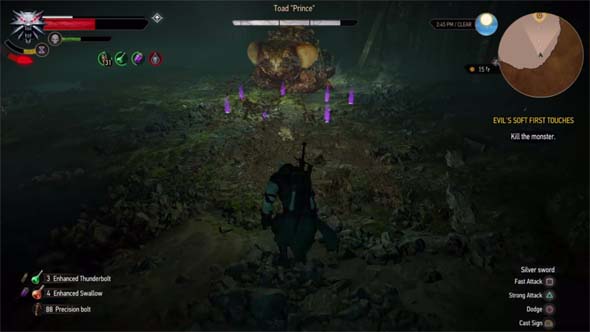
The boss fights in Hearts of Stone seem to break the game's rules, and frustrated me to no end.
To add insult to injury, this boss fight ends with a cutscene, and the next playable, non-dialogue sequence is another boss fight, this time a mage with an entourage of soldiers. Without any of my support or crowd-control spells, I ended up having to replay this fight several times as well (it didn't help that the mage seemed to have a one-hit kill area-of-effect tornado attack). At the end, I thought I would be able to respec my character back to the way I had him, but apparently that potion is only a one-time use. I had to fast travel around to several merchants to try to find someone who would sell another copy to me (because Kiera disappears after you finish the main story, so I couldn't buy it from her). It cost 1,000 gold! Then, after finding my way back to the original quest-giver, I got stuck in yet another obnoxious boss fight.
All three of these boss fights seemed to break the game's established rules. The first one kept hitting me with poison, so I tried using a potion that was supposed to allow me to heal from exposure to poison. Except the potion didn't work. Neither of the other two bosses were vulnerable to Yrden or to dimeritium bombs to block or negate their magic abilities. This all was incredibly frustrating, as one of my biggest pet peeves with video games is when the developers give bosses immunity to all the fancy support items and spells that the player has, which you've been saving up for just such an occasion - a boss being the one place where such tools are actually useful or necessary. On top of that, all three fights are needlessly long endurance matches that quickly devolve to repeating the same few actions a hundred times in a row. Absolutely, unforgivably terrible boss fights, the whole lot of them! Needless to say, this DLC did not get off on the right foot with me - much like the base game didn't.
But I grit my teeth and played through the base game, only to find some of the most outstanding quest design and characters that gaming has to offer. So I would do the same with the Hearts of Stone DLC. And once again, I was rewarded for my patience with a quality storyline.... [More]
785a1852-4d97-42a1-8809-18dc15cc467f|0|.0
Tags:The Witcher, The Witcher III: Wild Hunt, expansion, DLC, Hearts of Stone, Blood and Wine, CD Projekt Red, Geralt, open world, RPG, Olgierd von Everec, Iris von Everec, Gaunter O'Dimm, Toussaint, Beauclaire, vampire, homestead, estate, vineyard, immortality, predestination, France
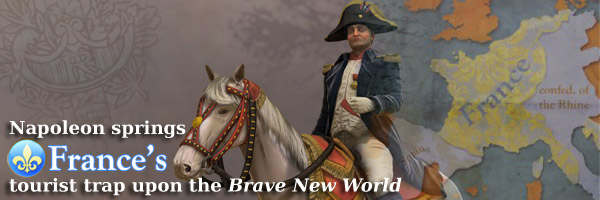
Now that I've finished my series of strategy posts about Brave New World's new civilizations, I want to take some time to look into some of the legacy civs that have received updates since Brave New World. France received a major revision in Brave New World out of the box, having its national trait completely redesigned, and one of its unique units was replaced with a powerful new unique improvement.
Humans have been occupying the land of France for at least 1.8 million years. The caves of Lascaux are a famous paleontological / archaeological site, as its cave paintings are some of the earliest and best-preserved examples of early human art and culture. After the fall of the Roman Empire, the region was split up between numerous Germanic tribes. One Germanic group, the Franks, eventually came to control most of the region, and this is where the term "France" was eventually derived. They set up the first French Kingdoms, which gained strength during the medieval periods despite threats from the Vikings and English. The European Enlightenment can trace many of its roots to the intellectual circles of France, which eventually culminated in the French Revolution that deposed and executed King Louis XVI and established a fledgling Republic.

Napoleon Bonaparte seized control of this young Republic in 1799, eventually declaring himself the Emperor of France. He was a military genius of the time and an expert in the use of artillery. He conquered much of Europe from Spain all the way to Russia, and even fought campaigns in Africa (although these campaigns were not successful). His conquests helped to spread French culture, ideals, and reforms around the world, including widespread adoption of the metric system, new military traditions, and the Declaration of the Rights of Man. His armies eventually fell victim to the harsh Russian winters, which halted Napoleon's aggressions and forced a withdrawl. His reign eventually culminated in a devastating defeat at Waterloo (then part of the United Kingdom of the Netherlands). He was forced into exile on the island of Saint Helena, where he eventually died of stomach cancer in 1821.
One of Napoleon's nephews, Louis-Napoleon Bonaparte (Napoleon III), launched an enormous public works program in Paris in the mid 1800's in order to build hundreds of kilometers of wide boulevards and streets, replace the sewer system, construct parks, and be the first city in the world to install artificial lighting (originally oil-lit lanterns). This made Paris into the world's first "City of Light", allowing people to work and engage in recreational activities around the city during the night, eventually establishing a 24-hour culture and the urban nightlife.
[More]
9f3d3eec-89be-41a6-a1c0-4bd688440079|8|3.0
Tags:Sid Meier's Civilization, Civilization V: Brave New World, Civilization V, great work, theming bonus, luxury resource, Ancient Regime, France, unique improvement, Napoleon, City of Light, Chateau, Musketeer, Foreign Legion, Paris, tourism, culture, wonders, capital, Musketman, Civ-V
|

| 12 | | | | | | | 60 | | 11 | | | | | | | 55 | | 10 | | | | | | | 50 | | 09 | | | | | | | 45 | | 08 | | | | | | | 40 | | 07 | | | | | | | 35 | | 06 | | | | | | | 30 | | 05 | | | | | | | 25 | | 04 | | | | | | | 20 | | 03 | | | | | | | 15 | | 02 | | | | | | | 10 | | 01 | | | | | | | 05 |
|